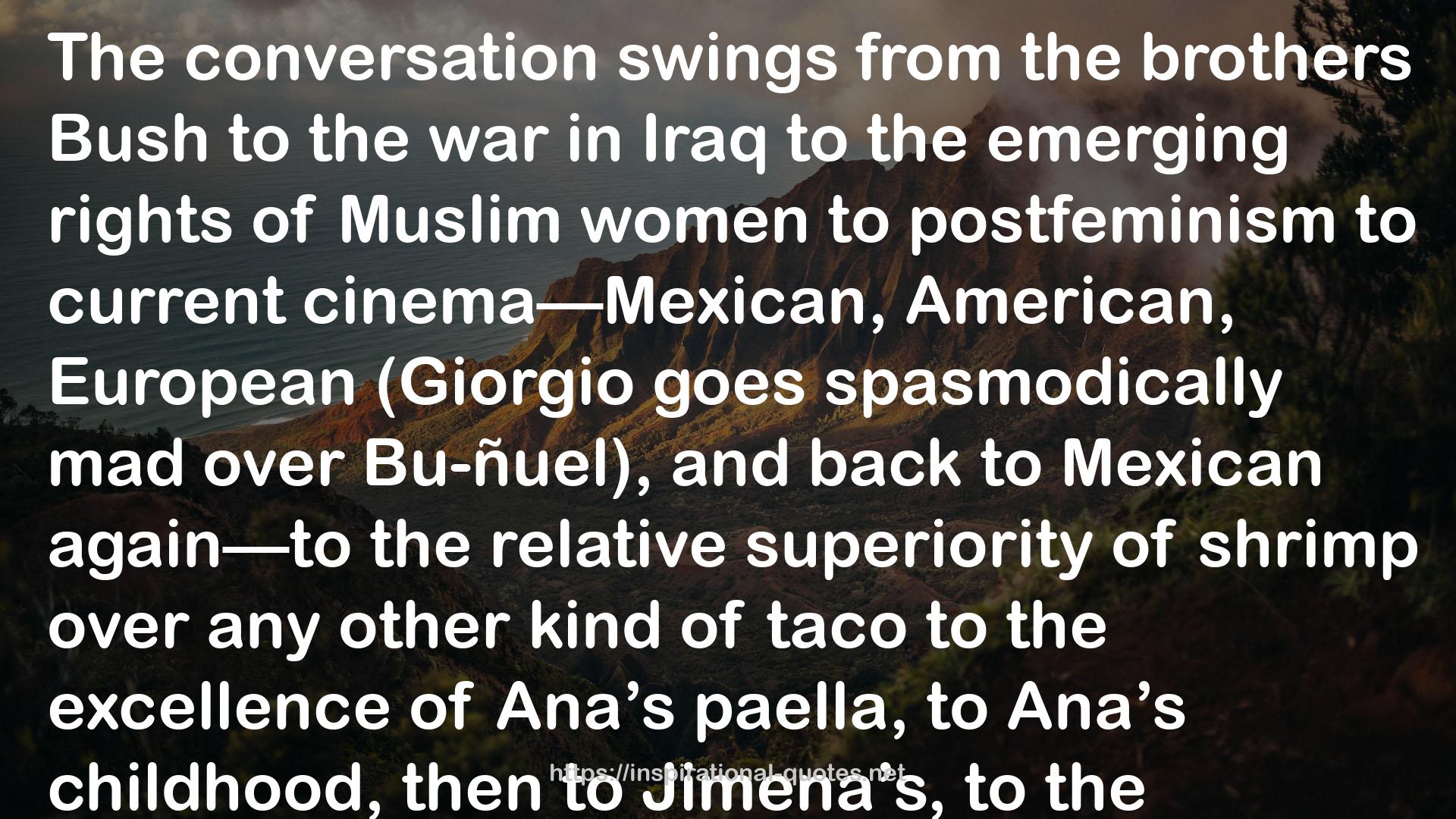" The conversation swings from the brothers Bush to the war in Iraq to the emerging rights of Muslim women to postfeminism to current cinema—Mexican, American, European (Giorgio goes spasmodically mad over Bu-ñuel), and back to Mexican again—to the relative superiority of shrimp over any other kind of taco to the excellence of Ana’s paella, to Ana’s childhood, then to Jimena’s, to the changing role of motherhood in a postindustrial world, to sculpture, then painting, then poetry, then baseball, then Jimena’s inexplicable (to Pablo) fondness for American football (she’s a Dallas Cowboys fan) over real (to Pablo) fútbol, to his admittedly adolescent passion for the game, to the trials of adolescence itself and revelations over the loss of virginity and why we refer to it as a loss and now Óscar and Tomás, arms over each other’s shoulders, are chanting poetry and then Giorgio picks up a guitar and starts to play and this is the Juárez that Pablo loves, this is the city of his soul—the poetry, the passionate discussions (Ana makes her counterpoints jabbing her cigarette like a foil; Jimena’s words flow like a gentle wave across beach sand, washing away the words before; Giorgio trills a jazz saxophone while Pablo plays bass—they are a jazz combo of argument), the ideas flowing with the wine and beer, the lilting music in a black night, this is the gentle heartbeat of the Mexico that he adores, the laughter, the subtle perfume of desert flowers that grow in alleys alongside garbage, and now everyone is singing— México, está muy contento, Dando gracias a millares… —and this is his life—this is his city, these are his friends, his beloved friends, these people, and if this is all that there is or will be, it is enough for him, his world, his life, his city, his people, his sad beautiful Juárez… —empezaré de Durango, Torreón y Ciudad de "
― Don Winslow , The Cartel (Power of the Dog #2)
